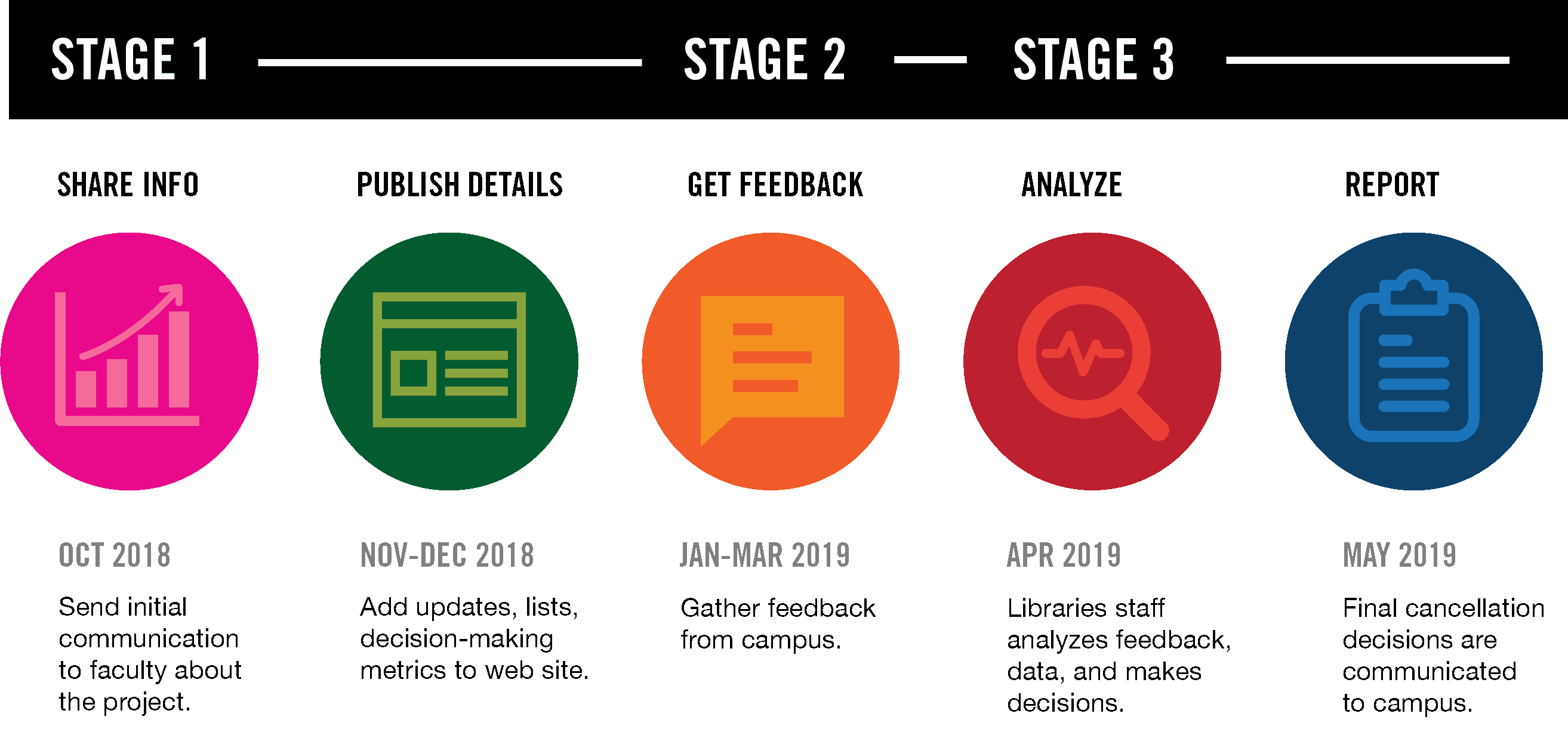You have /5 articles left.
Sign up for a free account or log in.

The University of Iowa
At the University of Iowa Libraries, publisher price increases have become too much to bear.
The libraries announced late last year that they needed to trim $600,000 from their budget, calling on faculty members to help them decide which subscriptions should stay and which should go. The cancellations are just one of a number of difficult budget decisions the university has made following back-to-back state funding cuts.
In a letter to the campus in October, John Culshaw, Jack B. King University Librarian, and Sue Curry, the university's interim executive vice president and provost, wrote that scholarly publishers’ price increases are “simply not sustainable.”
That subscription costs are too high is a common complaint among university librarians. Just last month, Louisiana State University announced that it would be terminating its bundled journal subscription deal with publisher Elsevier in a bid to save the university $1 million a year. LSU leaders said “dramatic increases” in subscription costs had made the deal unsustainable. Several other institutions, notably the University of California system, also have recently canceled their “big deals” with publishers.
Subscription costs at Iowa had risen by 5 to 7 percent annually, while the university’s budget for these materials remained largely flat in recent years, Culshaw and Curry wrote. To address this funding gap, the libraries reduced spending on printed books, eliminated duplication and canceled underused subscriptions. The library spent $12,023,500 on subscriptions in fiscal year 2018, down from $12,121,674 in fiscal year 2017. But the cut of roughly $100,000 wasn’t enough.
“These cost-saving efforts have not been enough to offset subscription cost increases set by scholarly publishing companies,” the letter said. “We must cut about $600,000 in annual subscriptions if we are to maintain access to the information resources that are vital to research and scholarship.”
As part of a multistage consultation process, liaison librarians worked with faculty members and students in each academic department to draw up an initial list of titles that could be eliminated with minimal damage to teaching and research.

At the beginning of the spring semester, the entire campus was invited to view the provisional list of subscriptions to cancel and to suggest specific titles to keep. The results were analyzed, and the librarians distributed a final list of 820 subscriptions to be canceled.
The cuts aimed to reduce spending by 10 percent for publications related to basic sciences, engineering and health sciences; 7 percent for social sciences; and 5 percent for humanities. Subscriptions managed by the law library were not included.
Linda Walton, associate university librarian, said in an email that the libraries reached out to every faculty member and graduate student asking them to complete a survey on which titles to keep. The libraries received 510 completed surveys and 10 emails containing detailed responses.
In some cases, these responses “resulted in retaining titles that otherwise would have been canceled,” she said. “The feedback helped the libraries make the best decisions possible for UI students, faculty, researchers and staff.”
Among the canceled titles are magazines you might find on a newsstand, such as Cosmopolitan, Golf Digest, Penthouse and Times Higher Education. But most of the titles are more conventionally academic -- journals and publications in a range of disciplines, from African Studies to Theater Arts. Many journals appear to cover niche areas of study, such as the International Journal of Tantric Studies and the Journal of Helminthology. Several journals are in languages other than English, including titles published in German, Japanese and Chinese. The journal cancellations will go into effect on Jan. 1, 2020.
“As I glance at the list, I do see several items I don’t consider obscure or esoteric,” Landon Storrs, professor and chair of the department of history, said in an email. “But I also have found interlibrary loan to be efficient at obtaining things we don’t have.”
Although faculty members will lose instant access to 822 titles, all journals will continue to be available through interlibrary loan systems, said Walton. The university is part of a consortium of research libraries that share resources through a service called UBorrow, which typically delivers digital copies of requested journal articles in less than 24 hours.
Storrs said the library did a good job informing professors of the changes, giving them plenty of advance notice and opportunity to give their input. Meeting minutes of the university's Faculty Senate show faculty members echoing this sentiment, thanking Culshaw and his colleagues in the library for their “thoughtful approach to this dilemma.”
Russell Ganim, director of the division of world languages, agreed that the libraries had conducted the cancellation process in a “very thoughtful manner.”
“The cuts are regrettable, but they are inevitable given reductions in funding,” said Ganim. “As far as I know, the workflow of individual faculty in my unit will not be impeded. However, this remains to be seen, as we do not know the long-term effects of these cuts.”
This is not the first time that the university's libraries have been forced to cancel large numbers of titles. In 1991, the libraries canceled $237,733 in subscriptions, with further significant cuts in 1994, 1996 and 2000.
“Faculty always hope that an R-1 university will subscribe to everything,” said Storrs. But she said subscription costs add up quickly. “If library records show that no one has accessed a particular title in many years, then I can understand the decision to prune the list once in a while.”




